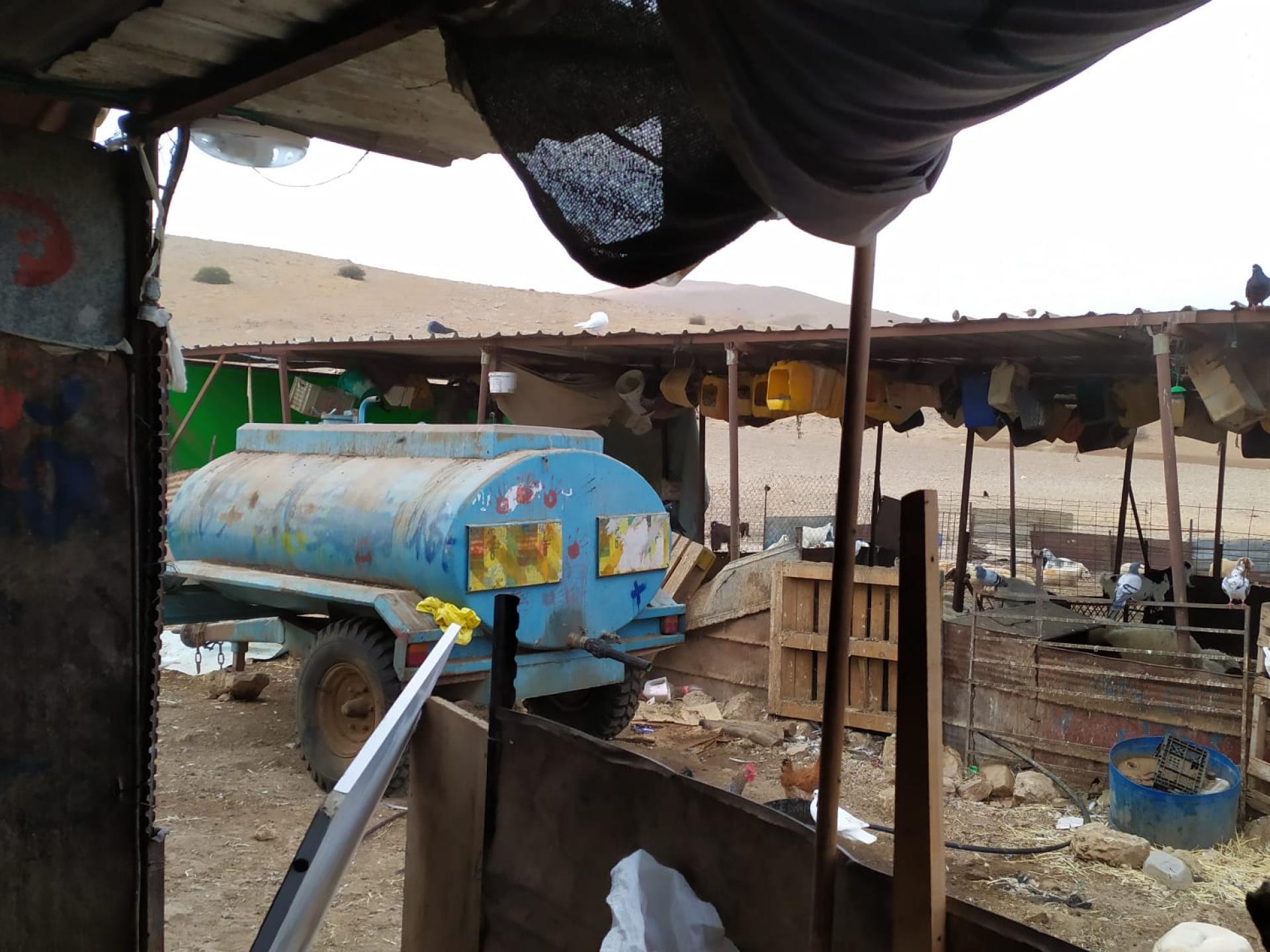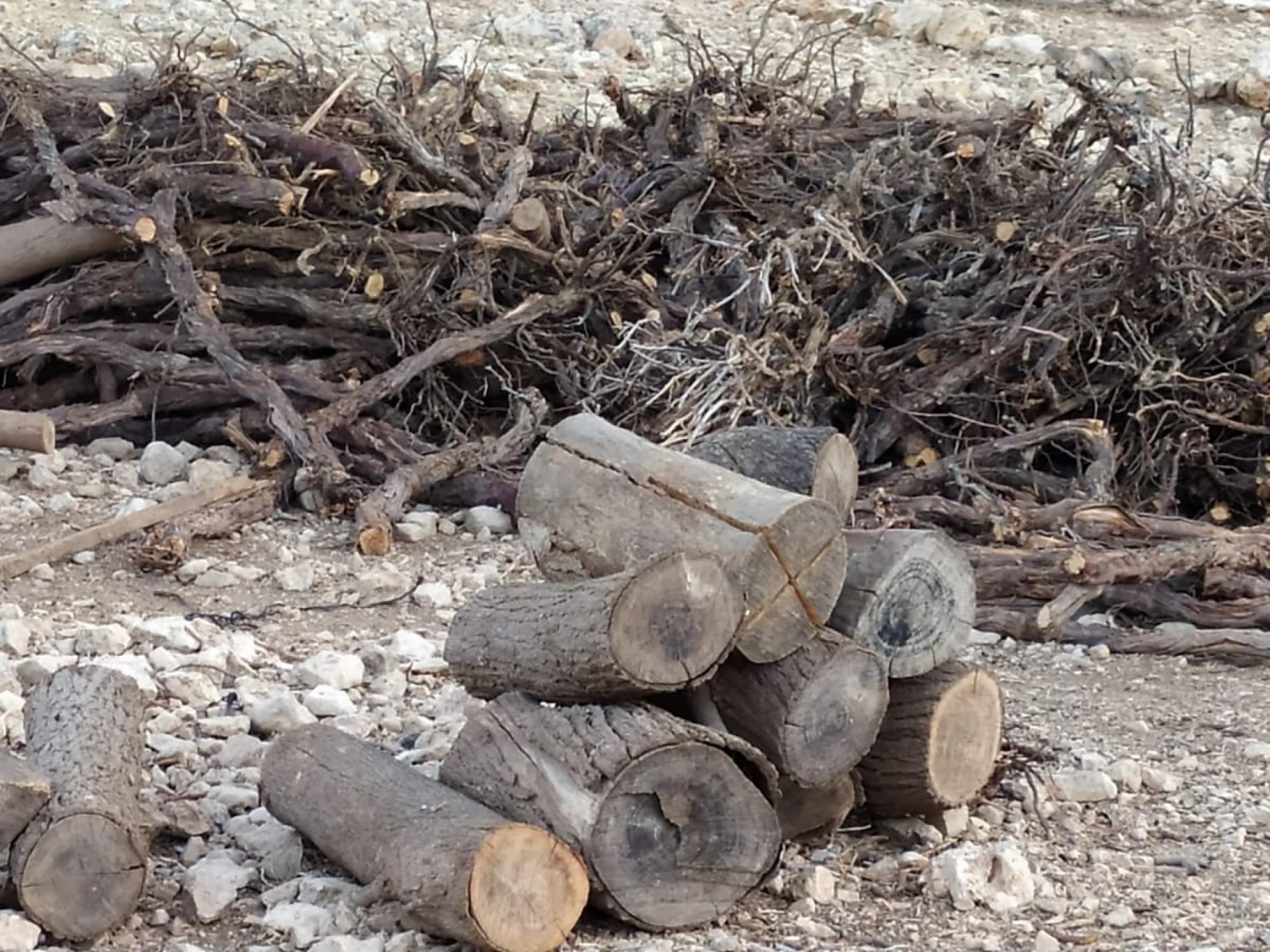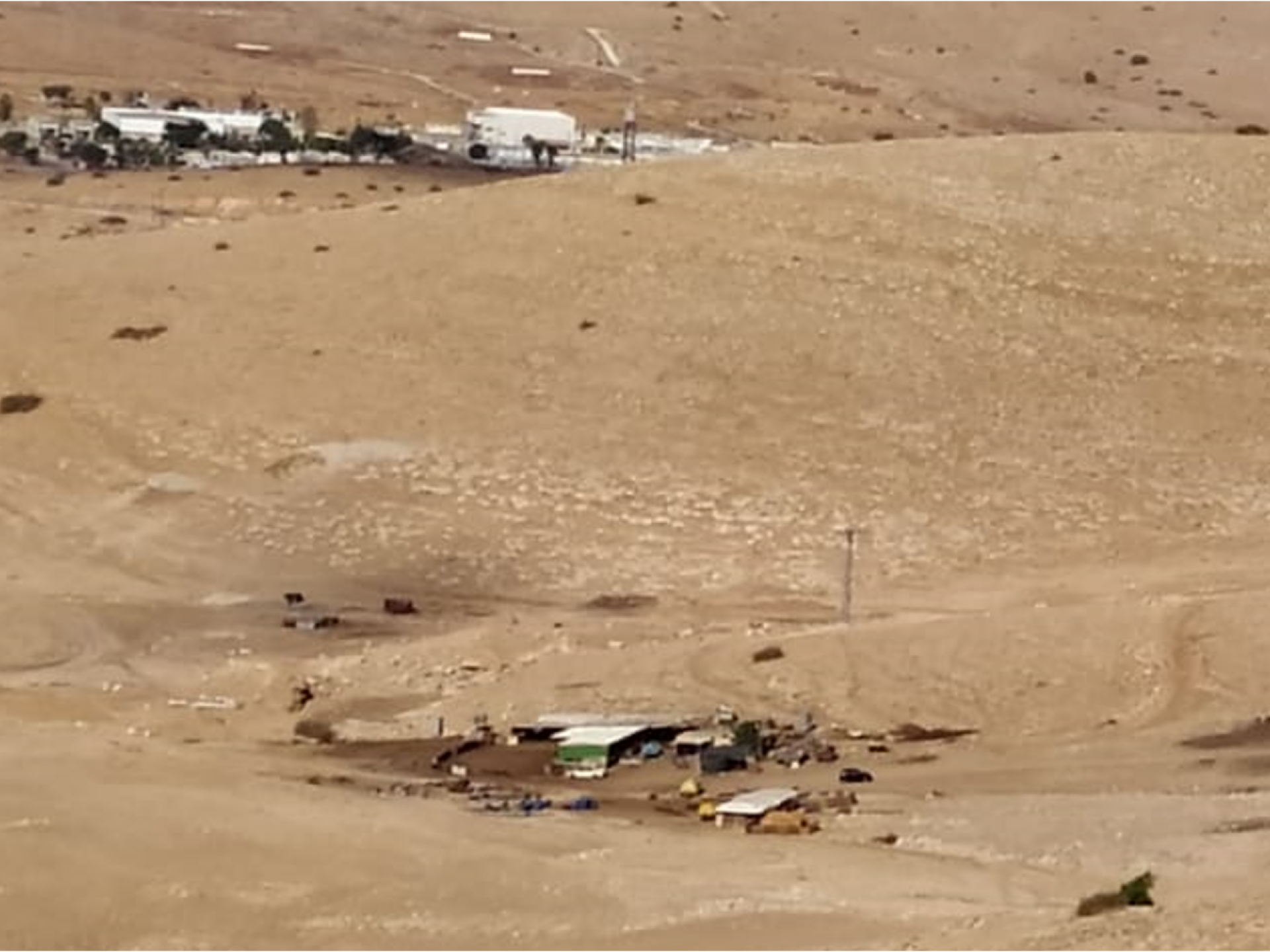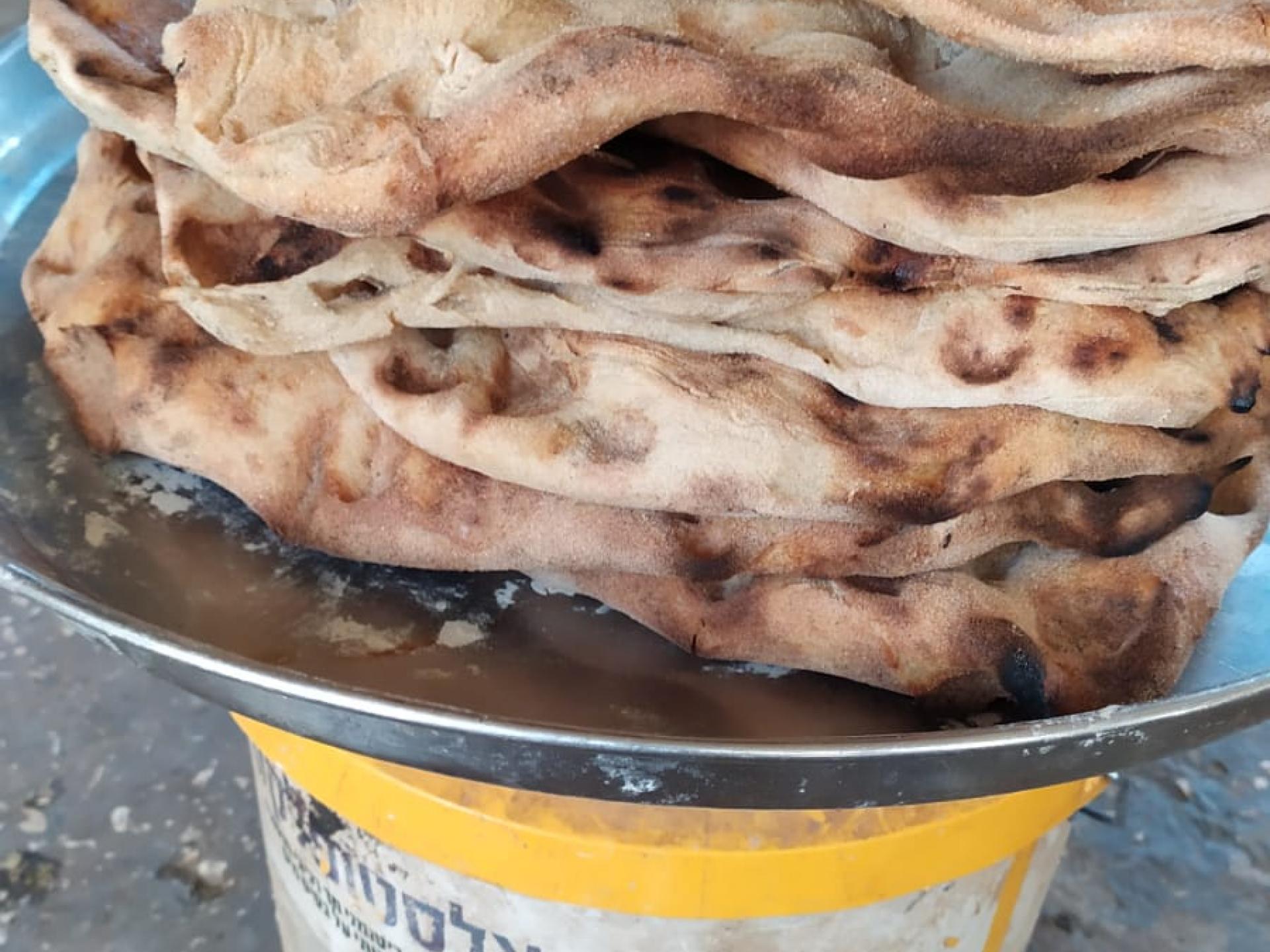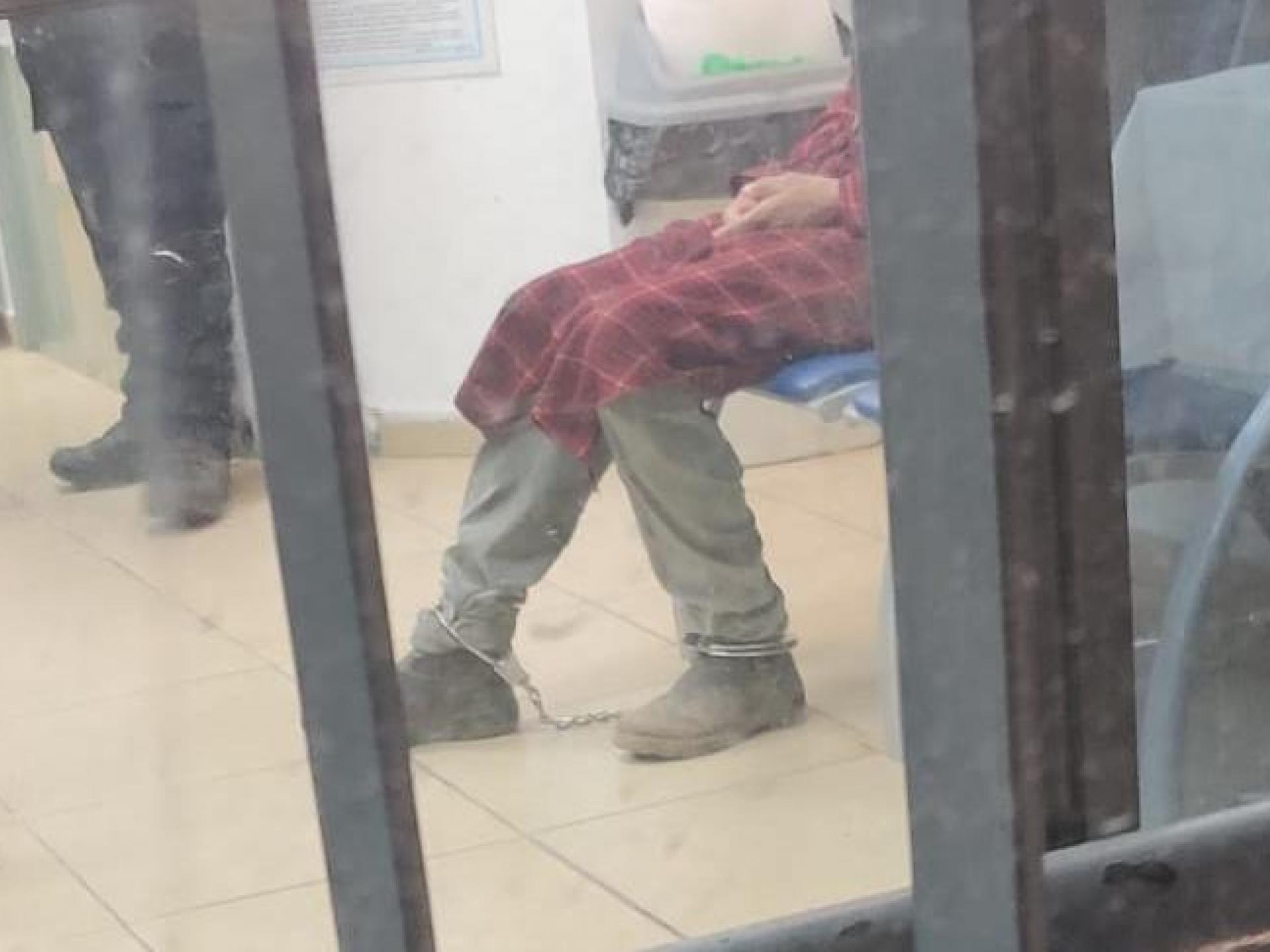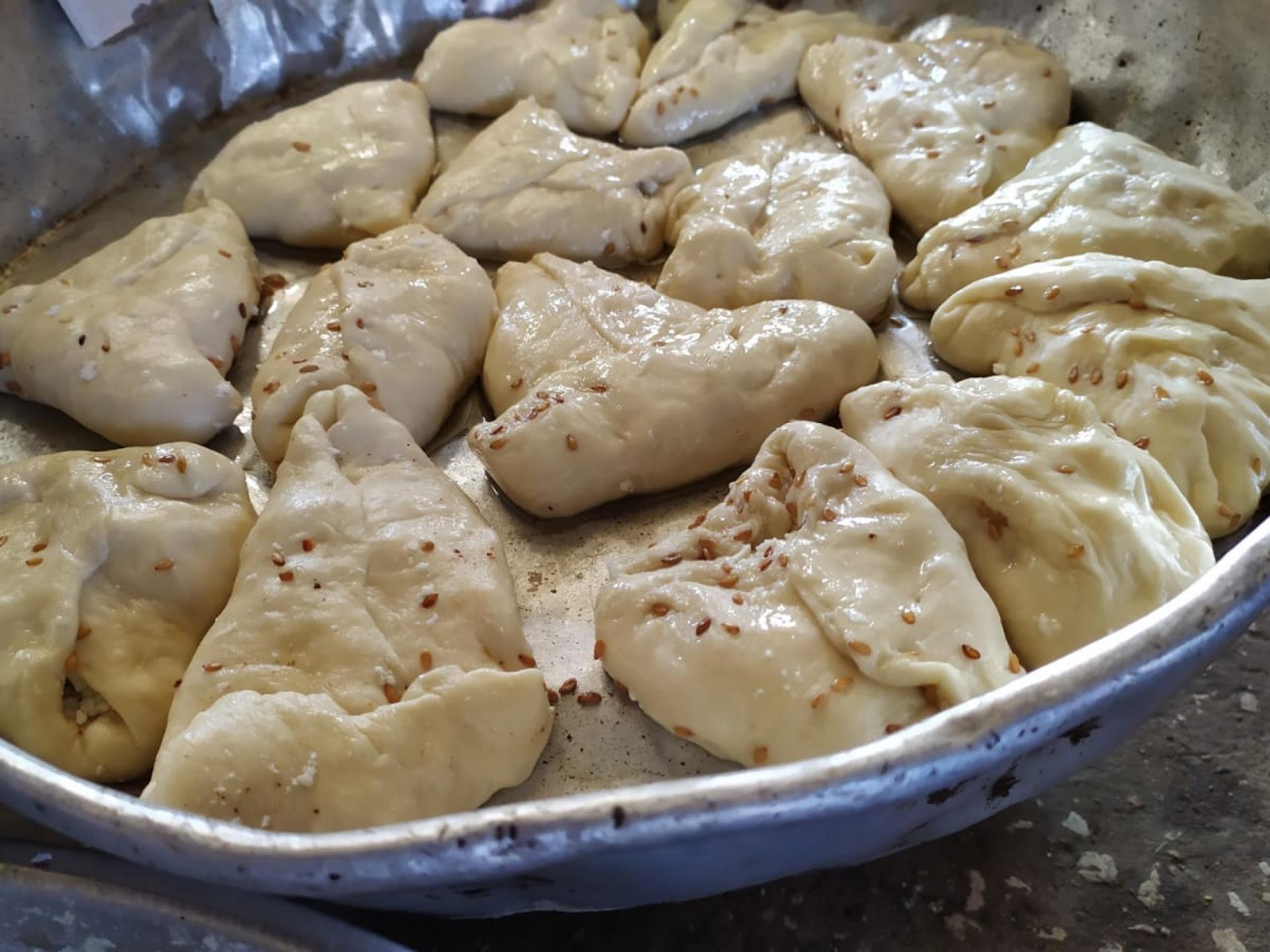The handcuffed mother was not allowed to breastfeed her baby

Saturday, late afternoon, I came to Khirbet Makhoul in order to spend the night in the home of shepherd B., after the (shepherd accompanying) group resolved to be with whom the whole time, after receiving threats from a settler-colonist living on the family’s grazing grounds.
I got a bed and into my sleeping bag. It was nice as usual. In the morning I helped water the flock, some of which went out to graze, and others stayed. We took warm beverages and got on our way.
We went up east of the shepherd’s home. The hills are rather high. We continued northward and came close to an Israeli army base seen quite well from the shepherd’s home. At some point, the way is blocked by a barbed wire laid by the settler-colonists. At noon we took a break. The sheep drank, received grain feed, and rested.
I took the break time to visit a nearby family, chat with the hostess, and give the children things we received for them from Buma Inbar – lent out reading booklets in Arabic and a gift of coloring notebooks and colors.
When I got back we left for the afternoon’s exhausting grazing. The flock scattered in all directions. Irritating.
The next day, Monday, October 18, Yaacov Godo joined us. We went east about 2 km. up and down steep hills. B. looked at us from above, and we saw that on the roads below and next to the army base a white vehicle of one of the thieving settler-colonists was driving around. B. decided we should head for home. He was expecting guests before and after the noon meal, and he preferred to be there to prepare for them.
Watering the flock and feeding it entails carrying large amounts of grain feed and of water. Whoever can help of the accompaniers – does.
I decided not to stay for the guests and preferred to drive to a family at En Sukut, be with the hostess and give out active gifts for the children. About 20 minutes after arriving at En Sukut, I received an urgent request to return to Khirbet Makhoul, where I had spent the whole time since Saturday. I sped back, followed by Amir and Oded who were accompanying shepherds north of there. I immediately went to the family home and asked the older girls where their mother was. One of them said: If you don’t want trouble with the police, don’t go. I laughed aloud and ran.
Close to the road stood Najia with her husband, near two police vans, several settler-colonists including Menachem Goshen (who last week had already harassed shepherd B.), soldiers and a military vehicle or two. The soldiers had their weapons at the ready. I clung to Najia, hugged her and held her arm. I told the policeman I was going with her wherever they were taking her. According to Amir and Oded’s reaction I understood that they were going to take her because of a settler-colonist demand.
What was the settler-colonist vehicle doing in the family’s hard 4 days earlier?! No one said anything.
Amir and Oded filmed and argued, and I pleasantly explained to the policeman that there was no way Najia would be taken anywhere without he. I explained why there is no chance for her to enter a police van alone even if it contains 10 women-soldiers or policewomen. The detailed explanation persuaded the policeman (I have no idea if that was the reason, but he helped further on too, when we switched cars later on the way). I promised Najia I would not leave her, and if she refused to come, they would forcibly detain or arrest her. Her partner also explained this to her.
We went into the van with her 4-month-old baby daughter.
daughter.
Oded drove behind us in my car, and Amir drove Oded’s car with the husband and one of the smaller boys.
I explained to Najia not to speak until a lawyer would get there. The policeman said so too.
On our way we were forbidden to speak. Once in a while I whispered to her, and Najia suckled her baby.
From about 1:30 until 7 p.m. we couldn’t convince the police to let the baby go in to her mother to be fed.
Who didn’t we try to have some influence on the situation? The list is very long.
Amir bought baby food, a bottle, a blanket, diapers. He nearly bought them a home… Both the baby’s father and I couldn’t make her take in food. She had gas and vomited a bit, but clearly she was refusing.
After 7 p.m. they agreed to let me in with the baby. Najia breast-fed her and the baby slept. It was wonderful to see them together and the whole time my eyes were on hers, we were not allowed to speak. Two policewomen stood over us. Another policewoman entered, and understood from me that the mother should get some water to drink – she breast-feeds and needs a lot of water. The woman who came in understood some more and tried to offer refrigerated sandwiches. I told her there was no chance that Najia would eat anything here because her own kitchen produces wonderfully delicious food.
Because of the absence of Arabic-Hebrew and Hebrew-Arabic translators, delay went on and on, and thus she sat in a separate room at the police station. As I said, water was offered only after 7 p.m. We knew we would not budge from that police station until she was released or we would be arrested in her stead. I had an especially hard time since I promised her I wouldn’t leave her and now here I was outside, and she inside.
Oded and Amir were with me most of the time, and my phone talks with Daphne Banai and Attorney Riham were very reassuring. Around 9:30-10 p.m. talk was beginning about transferring Najia to a Palestinian detention facility. From Riham I began to understand that the media and social efforts were working and the Israeli police’s laughable procedure was being reported locally and abroad, and reports were beginning to work.
Had Najia been released immediately, that would be a confirmation of negligence and lack of professionalism on the part of the Israeli police. Therefore, her transfer to the Palestinian police was perceived – who knows why – as continued detention.
We entered their home at midnight. The husband and younger son were driven by a friend. A Palestinian human rights organization drove Najia and her baby daughter straight home.
סרטונים מקואליצית הבקעה

